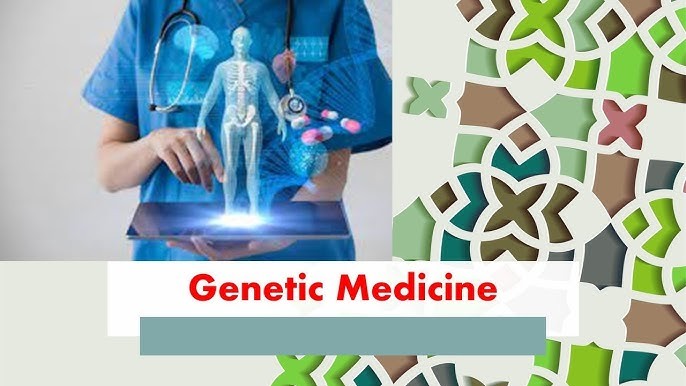In today’s rapidly evolving landscape of healthcare and personal wellness, genetics has emerged as a fundamental factor shaping our understanding of health and disease. While many people recognize that genes influence physical traits such as eye color or height, the extent to which genetics plays a role in overall health is profound—and often more nuanced than commonly appreciated. Unpacking the role of genetics in health reveals a fascinating interplay between inherited factors and lifestyle choices, one that holds significant implications not just for individuals but also for businesses operating in health, insurance, and wellness industries.
At its core, genetics refers to the information encoded in our DNA, passed down from parents to offspring. This genetic blueprint governs the functioning of cells, organs, and systems throughout the body. Certain genes carry instructions that influence susceptibility to various diseases, response to medications, metabolism, and even behavioral tendencies. For example, mutations in the BRCA1 and BRCA2 genes have been linked to a higher risk of breast and ovarian cancers, alerting carriers to the need for enhanced screening and preventive measures. Similarly, genetic variants can impact how individuals metabolize drugs, affecting the efficacy and safety of treatments—a field known as pharmacogenomics.
However, genetics is rarely destiny. One of the most important insights of modern medicine is that genes interact closely with environmental factors, lifestyle choices, and social determinants of health. For instance, having a genetic predisposition for type 2 diabetes does not guarantee development of the condition; diet, exercise, and weight management play decisive roles in whether that genetic risk manifests. This dynamic means that knowledge of one’s genetic makeup can empower proactive health management rather than fatalism. Personalized health strategies, informed by genetic testing, can help individuals adopt targeted lifestyle changes and monitor specific risks more closely.
The business implications of this growing genetic understanding are wide-ranging. In healthcare, for example, genetic testing has transitioned from niche research labs to more accessible, consumer-facing services. Companies offering direct-to-consumer DNA tests provide insights into ancestry, traits, and health risks. While some skepticism remains regarding the accuracy and interpretation of these tests, their popularity underscores a shift toward individualized health engagement. On a broader scale, healthcare providers and insurers are increasingly exploring how genetic data might be integrated into risk assessment, preventive care, and treatment planning—though this also raises important ethical and privacy considerations.
Another practical example of genetics’ role in health is its influence on nutrition and fitness. The burgeoning field of nutrigenomics studies how genetic variations affect nutrient metabolism and dietary needs. Some people might thrive on higher-fat diets, while others respond better to carbohydrates, based in part on their genetic profile. Similarly, genetic factors can influence muscle composition, recovery rates, and injury risk, helping athletes and fitness enthusiasts optimize training regimens. Businesses that leverage these insights are pioneering personalized wellness programs that cater to the unique genetic profiles of their clients, promising more effective results than one-size-fits-all solutions.
Of course, the integration of genetics into health management is not without challenges. One key hurdle is interpreting complex genetic information in ways that are meaningful and actionable for individuals. Genetic data can sometimes produce ambiguous or probabilistic results, which require careful explanation to avoid misunderstanding or anxiety. Additionally, issues of data security and consent are paramount; individuals must be assured that their genetic information is handled with the highest standards of privacy and confidentiality.
Moreover, there remains a risk of genetic determinism—the mistaken belief that genes alone dictate health outcomes—leading to complacency or neglect of other crucial health factors. Effective communication and education are essential to highlight that genetics provides a powerful but partial piece of the health puzzle. In fact, many common chronic diseases result from the interplay of genetics with environmental exposures such as diet, pollution, and stress. Thus, holistic approaches that combine genetic insights with lifestyle interventions stand the best chance of improving health outcomes.
In the workplace and business environment, understanding genetics can also inform wellness initiatives and health benefits. Employers increasingly recognize that fostering employee health through personalized programs can enhance productivity and reduce costs associated with chronic illnesses. Genetic testing, if offered ethically and voluntarily, may allow companies to tailor wellness resources to better meet the needs of their workforce. However, this also requires careful navigation of legal protections, such as the Genetic Information Nondiscrimination Act (GINA) in the United States, to prevent misuse of genetic information.
In summary, the role of genetics in health is both foundational and evolving. It offers an unprecedented window into the biological factors underlying disease risk and individual variation in health responses. But it is not a stand-alone predictor; genetics must be considered within the broader context of environment, behavior, and social factors. As technology advances and genetic testing becomes more integrated into mainstream healthcare and wellness, individuals and businesses alike stand to benefit from a more personalized, informed approach to health management. By embracing genetics as one crucial piece of a complex puzzle, we can move toward smarter decisions, better outcomes, and ultimately, a more empowered relationship with our own health.


